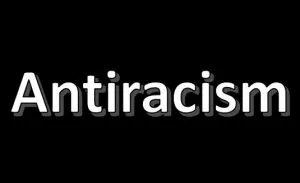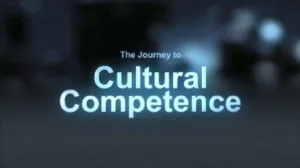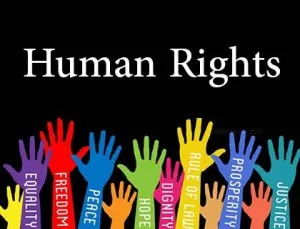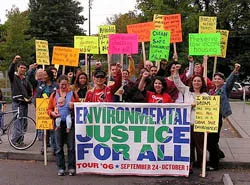One World Diversity Consulting offers services that assist organizations address Anti-Racism Education, Cultural Competence, Diversity, Equity, Human Rights and Environmental Justice.
Anti-Racism Education

Anti-racism refers to a form of action against racial hatred, bias, systemic racism, and the oppression of marginalized groups. Anti-racism is usually structured around conscious efforts and deliberate actions to provide equitable opportunities for all people on an individual and systemic level. As a philosophy, it can be engaged with by acknowledging personal privileges, confronting acts and systems of racial discrimination, and/or working to change personal racial biases. Micro-intervention strategies provide the tools needed to confront and educate racial oppressors. Specific tactics include revealing the hidden biases or agendas behind acts of discrimination, interrupting and challenging oppressive language, educating offenders, and connecting with other allies and community members are ways to act against discrimination. Using these micro-interventions allows the oppressor to see the impact of their words and provides a space for an educational dialogue about how their actions can oppress people of color and marginalized groups.
Cultural Competence

Cultural competence refers to an ability to interact effectively with people of different cultures, races, ethnicities, socio-economic backgrounds, gender identities, sexual orientations, physical abilities and ages. Cultural competence comprises four components: (a) awareness of one’s own cultural worldview, (b) attitude towards cultural differences, (c) knowledge of different cultural practices and worldviews, and (d) cross-cultural skills. It involves self-examination and in-depth exploration of one’s own beliefs and values as they influence behaviour and being receptive to learning about the cultural dimensions of the client.
Diversity

The concept of diversity encompasses acceptance and respect. It means understanding that each individual is unique, and recognizing our individual differences. These can be along the dimensions of race, ethnicity, gender identities, sexual orientation, socio-economic status, age, physical abilities, religious beliefs, political beliefs, or other ideologies. It requires an exploration of these differences in a safe, positive, and nurturing environment. It is also about understanding each other and moving beyond simple tolerance to embracing and celebrating the rich dimensions of diversity contained within each individual.
Equity

Equity is defined as the quality of being fair, unbiased, and just. In other words, equity involves ensuring that everyone has access to the resources, opportunities, power and responsibility they need to reach their full, healthy potential as well as making changes so that unfair differences may be understood and addressed. When thinking about equity, we need to consider how opportunities and barriers are influenced not only by personal circumstances and within households, but also by systems, policies and societies.
Human Rights

Human rights are moral principles or norms that describe certain standards of human behavior, and are regularly protected as legal rights in municipal and international law. They are commonly understood as inalienable fundamental rights to which a person is inherently entitled simply because she or he is a human being, and which are inherent in all human beings regardless of their nation, location, language, religion, ethnic origin or any other status. They are applicable everywhere and at every time in the sense of being universal, and they are egalitarian in the sense of being the same for everyone.
Environmental Justice
 Environmental Justice is the fair treatment and meaningful involvement of all people regardless of race, colour, national origin, or income with respect to the development and implementation of environmental regulations or policies. The environmental justice movement emerged to challenge the unfair distribution of toxic and dangerous waste facilities, disproportionately located in low-income communities of colour.
Environmental Justice is the fair treatment and meaningful involvement of all people regardless of race, colour, national origin, or income with respect to the development and implementation of environmental regulations or policies. The environmental justice movement emerged to challenge the unfair distribution of toxic and dangerous waste facilities, disproportionately located in low-income communities of colour.
